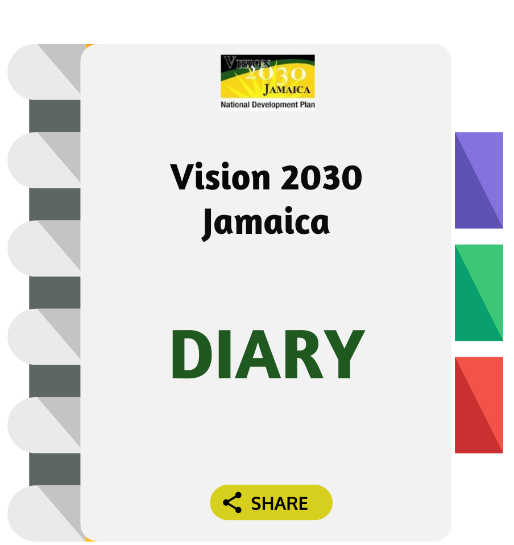Blog
Re-imagining the tourism sector in Jamaica: Lessons from COVID-19 (January, 2021)

 Before the threat of COVID-19, the tourism sector in Jamaica was poised to enter into its 10th consecutive year of growth since the global financial crisis of 2007–2009. Following a record -breaking year in 2019, a 3.0–4.0 per cent growth was projected for 2020. However, the country was on course to exceed that projection based on the tourism receipts for January to February which showed that the sector was growing at a rate of 5.2 per cent. Stopover arrivals in January 2020 totalled 227 200, an increase of 4.9 per cent or 10 691 additional arrivals compared with the 216 509 recorded in January 2019. Jamaica was expected to have earned US$4.25 billion in tourism revenues in 2020, a 10 per cent increase over the US$3.7 billion earned in 2019. With several current projects as well as new constructions in the pipeline, it was also anticipated that the sector would create 41 000 new jobs by 2022. Unfortunately, the novel coronavirus pandemic has ushered in a new paradigm filled with uncertainty and disruptions. The tourism sector, Jamaica’s second-largest earner of foreign exchange, is expected to haemorrhage by approximately $76.0 billion by year-end as the country welcomed just over 1.1 million visitors in the first 10 months of 2020.
Before the threat of COVID-19, the tourism sector in Jamaica was poised to enter into its 10th consecutive year of growth since the global financial crisis of 2007–2009. Following a record -breaking year in 2019, a 3.0–4.0 per cent growth was projected for 2020. However, the country was on course to exceed that projection based on the tourism receipts for January to February which showed that the sector was growing at a rate of 5.2 per cent. Stopover arrivals in January 2020 totalled 227 200, an increase of 4.9 per cent or 10 691 additional arrivals compared with the 216 509 recorded in January 2019. Jamaica was expected to have earned US$4.25 billion in tourism revenues in 2020, a 10 per cent increase over the US$3.7 billion earned in 2019. With several current projects as well as new constructions in the pipeline, it was also anticipated that the sector would create 41 000 new jobs by 2022. Unfortunately, the novel coronavirus pandemic has ushered in a new paradigm filled with uncertainty and disruptions. The tourism sector, Jamaica’s second-largest earner of foreign exchange, is expected to haemorrhage by approximately $76.0 billion by year-end as the country welcomed just over 1.1 million visitors in the first 10 months of 2020.
Overall, International travel and tourism have been disproportionately impacted by the socio-economic fallout from the COVID-19 pandemic. The global pandemic, the first of its scale in a new era of interconnectedness, has placed at risk 121.1 million jobs in travel and tourism with global GDP losses estimated at US$3.4 trillion. Tourism receipts worldwide are not projected to return to 2019 levels until 2023 as tourist arrivals have fallen globally by more than 65.0 per cent since the pandemic compared with 8.0 per cent during the global financial crisis and 17.0 per cent amid the SARS epidemic of 2003 (IMF, 2020). While many economic sectors are expected to recover once restrictive measures are lifted, the pandemic will probably have a longer lasting effect on international tourism. This is largely due to reduced consumer confidence and the likelihood of longer restrictions on the international movement of people.
The impact of tourism decline in Jamaica has been made worse by the fact that other key sources of revenues such as foreign direct investments and remittances are also at risk, given that primary suppliers—the United States, the United Kingdom and Canada—are also facing economic shock. The undiversified nature of the Jamaican economy also means more pronounced impact for our people, economy and future from prolonged tourism decline.
Amid its disruptive effect, however, this crisis has presented us with a unique opportunity to craft a new vision for the future of the sector—one which will be built around inclusiveness, resilience and sustainability as its defining features. Indeed, the crisis has reinforced the urgency at which we must act to reimagine tourism in order to boost sector earnings, diversify the tourism product, create opportunities for local entrepreneurs and ensure a sustainable and inclusive sector. During this time, it has become important that we adopt a strategic posture by using the downturn to build out, diversify and transform the sector to ensure its recovery in the shortest period, as well as its adjustment to the new demands of the post-COVID-19 era.
In the emerging post-Covid-19 paradigm, we expect that the traditional tourism model that is externally-driven, built around laissez-faire behaviours, an over-reliance on traditional markets, and that emphasizes quantity over quality will be either replaced or superseded by tourism products that emphasize health and safety, adaptability and sustainability. This pandemic has indeed presented us with a unique opportunity to transition towards a greener and more balanced tourism as it is anticipated that more tourists will opt for “sustainable” destinations in the post-COVID-19 era. Sustainable destinations emphasize more responsible, conservationist and wholesome behaviours and practices by all involved in the tourism value chain from tourists to locals as well as take into account the current and future economic, social, political and environmental impacts of tourism by balancing the needs of visitors, the industry, the environment and host communities. Another emerging consensus is that tourism may look inwards in the post-COVID-19 era. In the immediate term, industry leaders and players around the world prioritized domestic tourism throughout 2020, which could mean reconnecting communities and countries with their own culture. As we look to the future, seasonal downturns in international tourist arrivals and volatility in global tourism markets can be offset by sustaining staycation packages that target local residents who have traditionally felt excluded from higher priced all-inclusive vacation packages that are designed to attract international tourists.
In the long-term, this crisis also positions us to harness the potential of digitalization to drive new tourism experiences. Rapid digitalization coupled with emerging technologies, such as virtual and augmented realities, can create new forms of cultural experiences, dissemination, and new business models with vast market potential. With restrictions placed on physical interaction, many public and private providers moved content on-line for free to keep audiences engaged and satisfy the sharply increased demand for cultural content. From the perspective of Jamaica, new tourist offerings and products can be built around creating the digital infrastructure that will allow individuals from around the world to partake in simulated and virtual tourist experiences from the comfort of their homes. The current crisis also calls for more countries to design models of tourism that value and protect the natural and cultural assets of host countries, harness local creativity and talent, harmonize with the environment and involves greater levels of local participation in the tourism value chain.
Finally, the current crisis has reaffirmed the important role of the Global Tourism Resilience and Crisis Management Centre. The Centre represents the primary institutional framework in the region for measuring, forecasting and managing risks to the tourism sector. Its responsibilities include assisting with preparedness, management and recovery from disruptions and/or crises that impact tourism and threaten economies and livelihoods. The Centre has also been charged with the responsibility to lead the recovery of tourism in Jamaica and elsewhere in the region post COVID-19. The Centre’s immediate plans include establishing a Tourism Resilience Fund and introducing various innovations, toolkits and information resources to assist destinations to navigate this difficult period.
Written By: Prof. Lloyd Waller, Executive Director
Global Tourism Resilience and Crisis Management Centre, University of the West Indies
Up Next: Two Lectures: The Role of Academia in National Development Planning (March, 2021)



